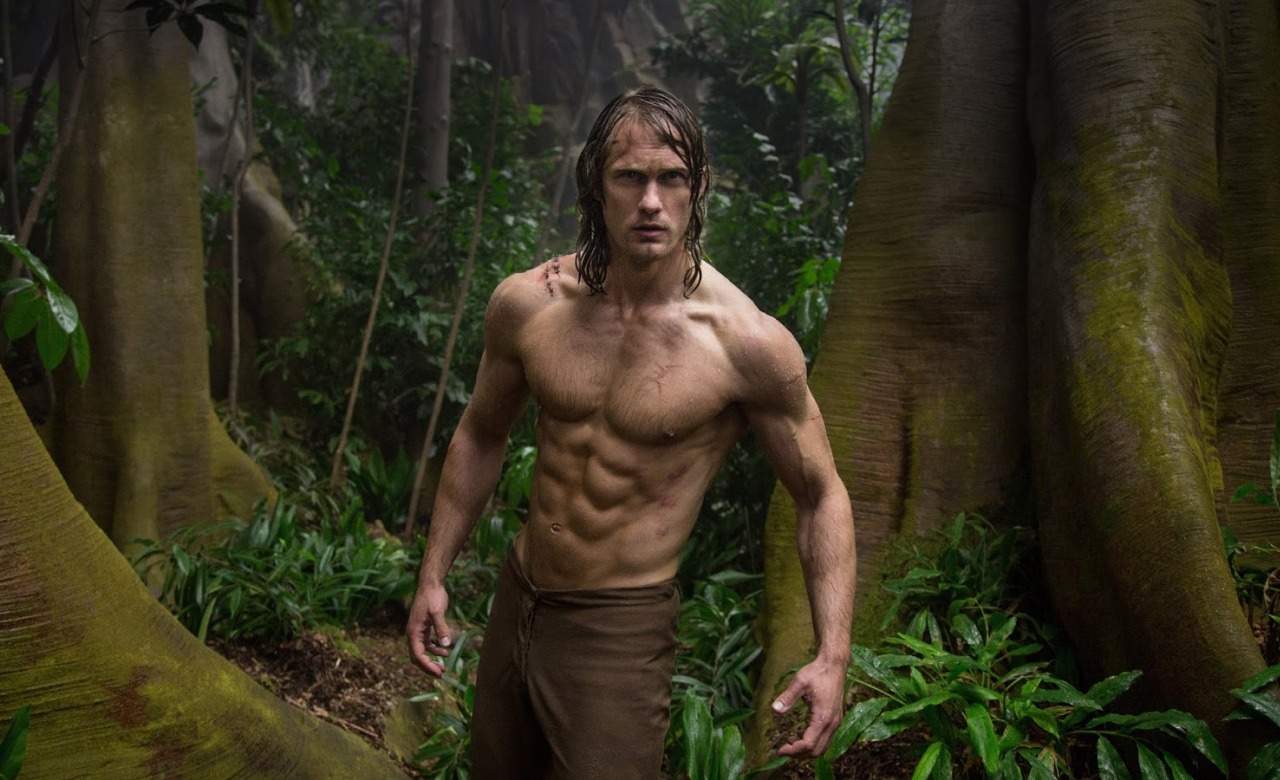The Legend of Tarzan
A superhero movie with a social conscience.
Overview
The team behind The Legend of Tarzan has done something very interesting with their film. Rather than simply giving us another version of the boy becomes man, man becomes hero, hero becomes legend tale, the film plays out much more like the final instalment of a trilogy, in which its hero's days of daring and valour are already all but behind him. Not unlike the bearded and beleaguered Bruce Wayne of Christopher Nolan's The Dark Knight Rises, Tarzan (Alexander Skarsgård) is, at the start of this story, Tarzan no more. Seated opposite the British Prime Minister in his most fashionable three-piece, the iconic jungle man now lives a secluded life in his remote castle and goes by his rightful birth name and title: John Clayton, Viscount of Greystoke, Member of the House of Lords.
That introduction alone gives The Legend of Tarzan a more complex and compelling platform from which to launch its story than many of its superhero contemporaries, whose protagonists consistently flounder and fall for lack of any clear-cut motivation other than generally being super. In this instance, it's the suspicion of slave trading in the Congo that compels Tarzan to resume his moniker and return to his beloved Africa, along with his wife Jane (Margot Robbie) and the real-life American Civil War hero turned politician and lawyer George Washington Williams (Samuel L Jackson). This undercurrent of slavery, along with allusions to ivory trading and ethnic cleansing, all serve to ground The Legend of Tarzan in something more than unadulterated comic book fun. The result is a superhero movie with a social conscience that continually flits in and out of getting the balance right.
In the titular role, Skarsgård looks every bit the part. With his flowing blond locks and unreasonably buff physique, you could comfortably sell just about any cologne or luxury watch simply by placing its logo on top of him and gently whispering its name. For a role so ridiculous (and truly, a man raised by gorillas who commutes via jungle vine is about as ridiculous as it gets), Skarsgård does an extraordinary job of keeping the audience's disbelief at bay. His dialogue is sensibly sparse, opting instead to speak through impressively expressive eyes and CGI-heavy action that's not nearly as awful as the early trailers made out.
Opposite him in the role of the villain, Christopher Waltz (Inglorious Bastards) again offers up his signature cocktail of eloquent menace paired with a spine-chilling grin. In truth it's a more nuanced and credible performance than his turn as Bond's arch-nemesis in last year's Spectre. Robbie, too, puts in a charming turn as Tarzan's wife Jane, yet despite every effort to establish her character's strength, courage and independence, she still ends up very much on the sidelines; an underutilized spectator to the action rather than an active participant.
In all, critics have been quick to condemn The Legend of Tarzan for both its hobbled story and themes, asking what place such an antiquated tale has in the modern world. Well the answer is 'fun', which the film most definitely is. Yes, the action is scattershot and often feels hurried, which is why its strongest scenes are also its most subtle ones – be they fireside singalongs, candlelit dinners or silent interactions with the jungle's magnificent creatures. The Legend of Tarzan could very easily have ended up another Lone Ranger-style disaster. Instead, director David Yates has managed to orchestrate an old-school adventure with an unshrinking social conscience. It's far from perfect, but it's darned good fun.





